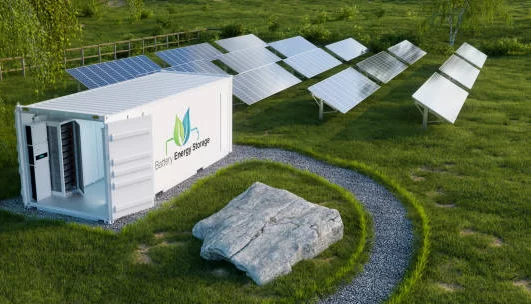Solar Power Systems Off Grid: Embracing Energy Independence
In a world that’s increasingly focused on sustainability and energy independence, solar power systems off grid are gaining significant attention. These systems allow you to generate your own electricity using solar energy without relying on the traditional power grid. Whether you’re looking to live in a remote area, reduce your carbon footprint, or simply cut ties with your local utility company, solar power systems off grid offer a compelling solution. In this post, we’ll explore what off-grid solar systems are, how they work, and why they’re becoming a popular choice for eco-conscious individuals and communities.

What Are Solar Power Systems Off Grid?
A solar power system off grid is a setup that allows you to generate electricity independently from the utility grid. In a typical grid-tied solar system, solar panels generate electricity during the day, and any excess energy is sent back to the grid. However, off-grid systems are completely self-sufficient and rely on batteries to store excess energy for use when the sun isn’t shining, such as at night or during cloudy weather.
These systems are particularly useful in remote areas where access to the power grid is limited or nonexistent. But even for those who live in urban or suburban areas, going off-grid can provide peace of mind and greater control over energy consumption.
How Do Solar Power Systems Off Grid Work?
Solar power systems off grid consist of several components that work together to provide a steady supply of electricity. Here’s a breakdown of the key elements and how they function:
- Solar Panels
The solar panels are the heart of any solar power system. They capture sunlight and convert it into direct current (DC) electricity. The number and size of panels you’ll need depend on your energy consumption and location. For off-grid systems, it’s crucial to have enough solar panels to generate the electricity needed to power your home or business throughout the day.
Solar Charge Controller
A solar charge controller regulates the amount of electricity flowing from the solar panels to the batteries. It ensures that the batteries are charged properly without being overcharged, which can damage them. The charge controller is vital for maintaining the health and efficiency of the battery storage system.
Battery Storage
Since off-grid systems don’t have access to the traditional power grid, battery storage is essential for storing excess energy generated during the day for use at night or during periods of low sunlight. The batteries store DC electricity, which can be drawn upon when needed. High-capacity batteries ensure that you have a consistent power supply, even during extended cloudy days or during higher-than-usual energy consumption.
Inverter
Most household appliances and electronics use alternating current (AC) electricity, but solar panels generate DC electricity. The inverter is responsible for converting the DC electricity stored in the batteries into usable AC electricity. Without an inverter, the electricity generated by your solar panels wouldn’t be compatible with your home’s electrical system.
Backup Generator (Optional)
While a well-designed off-grid solar system should be able to meet your energy needs most of the time, it’s always a good idea to have a backup generator for emergencies. A generator can provide power in case your solar panels and batteries can’t meet your energy demands, such as during extended periods of bad weather or unusually high energy usage.
Benefits of Solar Power Systems Off Grid
There are several compelling reasons to consider switching to an off-grid solar power system. Let’s explore some of the key benefits.
- Energy Independence
One of the main attractions of going off-grid is the sense of independence it offers. By generating your own electricity, you’re no longer reliant on utility companies or vulnerable to power outages. Whether you live in a remote location or just want more control over your energy supply, an off-grid solar system gives you the freedom to live sustainably without relying on the grid.
Cost Savings
Although off-grid solar systems require a significant upfront investment, they can lead to substantial long-term savings. Once your system is up and running, you’ll no longer have monthly electricity bills. Over time, the savings from avoiding these bills can outweigh the initial costs of installation and equipment. Additionally, many governments offer tax incentives or rebates for installing solar power systems, which can help offset the costs.
Environmental Impact
Solar power is a clean, renewable energy source that doesn’t produce harmful emissions or contribute to climate change. By going off-grid, you’re significantly reducing your carbon footprint and supporting the transition to a more sustainable future. Unlike fossil fuel-based energy, solar power doesn’t deplete natural resources or release pollutants into the air and water.
Resilience in Remote Locations
For those living in remote or rural areas where access to the grid is difficult or unreliable, off-grid solar power is often the most practical solution. Solar power systems off grid provide a reliable source of electricity, even in areas where extending the grid would be prohibitively expensive or technically challenging. Whether you’re in a cabin in the mountains or a homestead in the desert, off-grid solar can meet your energy needs.
Power During Outages
Even if you live in an area with a stable grid connection, power outages can still happen. Off-grid solar systems provide a reliable source of power during outages, ensuring that your home stays powered even when the grid goes down. This is particularly valuable in regions prone to natural disasters, where outages can last for days or even weeks.
Challenges of Solar Power Systems Off Grid
While solar power systems off grid offer many benefits, they also come with a few challenges that should be considered before making the switch.
- Higher Initial Costs
Off-grid systems generally have higher upfront costs compared to grid-tied systems due to the need for batteries and backup generators. The cost of batteries, in particular, can add significantly to the overall price of the system. However, these costs are often offset over time by the savings on energy bills.
Energy Storage Limits
Unlike grid-tied systems, which can draw power from the grid when needed, off-grid systems are entirely dependent on the energy stored in their batteries. This means you need to carefully manage your energy consumption to avoid running out of power. If you use more electricity than your system can generate and store, you may experience power shortages unless you have a backup generator.
Maintenance and Monitoring
Off-grid systems require regular maintenance to ensure they are operating efficiently. This includes monitoring battery levels, maintaining the inverter, and ensuring the solar panels are clean and functioning properly. While this isn’t overly complicated, it does require a certain level of attention and care.
Is a Solar Power System Off Grid Right for You?
Choosing to install an off-grid solar power system is a significant decision, but it can provide unmatched independence, cost savings, and environmental benefits. If you live in a remote location, experience frequent power outages, or simply want to reduce your reliance on the grid, going off-grid may be the perfect solution. However, it’s important to carefully consider your energy needs, budget, and the amount of sunlight your location receives before making the switch.
Conclusion
Solar power systems off grid offer a reliable, eco-friendly, and cost-effective way to power your home or business. By embracing energy independence and reducing your reliance on fossil fuels, you can enjoy the benefits of clean, renewable energy while ensuring you have a consistent power supply, no matter where you are. While the upfront costs and maintenance requirements may seem daunting, the long-term benefits of going off-grid can make it a worthwhile investment for those seeking a sustainable and self-sufficient lifestyle.
